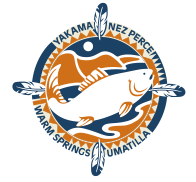SALEM, OREGON – On Friday, August 4, the Oregon Fish and Wildlife Commission, which consists of seven members appointed by the Governor, met in Salem to vote on a framework that would allow tribal members from the Confederated Tribes of Grand Ronde (CTGR) to participate in subsistence and ceremonial hunting, fishing, shellfishing, and trapping in geographical areas that overlap with treaty-reserved areas by CRITFC’s four member tribes. The vote passed 4-3, despite strong opposition by the four Columbia River Treaty Tribes (Confederated Tribes of Warm Springs Indian Reservation of Oregon, Confederated Tribes of the Umatilla Indian Reservation, Confederated Tribes and Bands of the Yakama Nation, and the Nez Perce Tribe) and sports fishers who provided testimony urging the committee to take no action to allow for further consultation with affected sovereigns. Furthermore, two of the seven commission members who voted for the MOA, Chair Wahl and Commissioner Labhart, are operating under expired terms that ended in May and June 2023, respectively.
“We are obviously disappointed with today’s decision. We were not opposing the entirety of the Grand Ronde MOA, rather voicing our concerns for the lack of consultation from ODFW and Grand Ronde with the Treaty Tribes. The four Columbia River Treaty Tribes were simply asking ODFW to complete consultation to address our specific concerns in the MOA regarding the geographical scope proposed in the agreement. The encroachment and potential impacts to our treaty-reserved Usual and Accustomed fishing areas at Willamette Falls and the Lower Columbia were not considered by some ODFW Commissioners in today’s decision” said Corinne Sams, Chair of the Columbia River Inter-Tribal Fish Commission (CRITFC).
Despite a series of letters sent from the Columbia River Treaty Tribes requesting consultation on these concerns over the past three months, neither ODFW, CTGR or the Governor’s Office provided meaningful consultation to our member tribes to resolve our concerns, in fact both the Yakama Nation and Nez Perce Tribe were not consulted at all. This goes outside the established process Oregon recently took when they entered into two similar MOA’s between Cow Creek and Siletz Tribes. Following government-to-government consultations with the Columbia River Treaty Tribes, the Cow Creek and Siletz Tribes agreed to limit their geographical scope to ensure no overlap occurred in any of our Usual and Accustomed areas and CRITFC tribes supported the approval of their MOAs.
“The obvious lack of due process and consideration for our valid and documented concerns were ignored by some commissioners. However, we very much appreciate those commissioners who objectively and carefully considered our frustration and disappointment in the process and choose to vote no. Friday’s vote didn’t even have to occur, the Commission could have tabled the decision to allow for full consultation to occur and time for us to reach an agreement on the geographical scope proposed in the agreement” stated Jeremy Takala, Vice-Chair of CRITFC.
This MOA comes on the heels of Oregon State Governor Tina Kotek’s endorsement of Federal Senate Bill 3126 that would have made it legal for the Grand Ronde Tribe to amend the restrictive, permanent agreements that were written into laws that created their reservation in 1986. The bill did not pass.
The Grand Ronde Tribe was terminated in 1954 when Congress passed the Western Oregon Termination Act. In 1983, the U.S. government re-recognized the tribe, but they had no land. Three years later through consent decree, the Grand Ronde signed an agreement with the federal and state governments that restored their federal status and gave them some land for a reservation, providing that they agree to give up their fishing and hunting rights outside of reservation boundaries. ODFW’s decision calls into question the State’s authority to establish state-given tribal rights in the same geographical location where other treaty tribes practice their treaty reserved hunting and fishing rights. Oregon sport fishers are also concerned that tribal permits issued to Grand Ronde members will be taken out of State’s allocation of the 50-50 share between treaty tribes and the State pursuant to the court case, U.S. v. Oregon, to which Grand Ronde Tribal members are not a party to.

